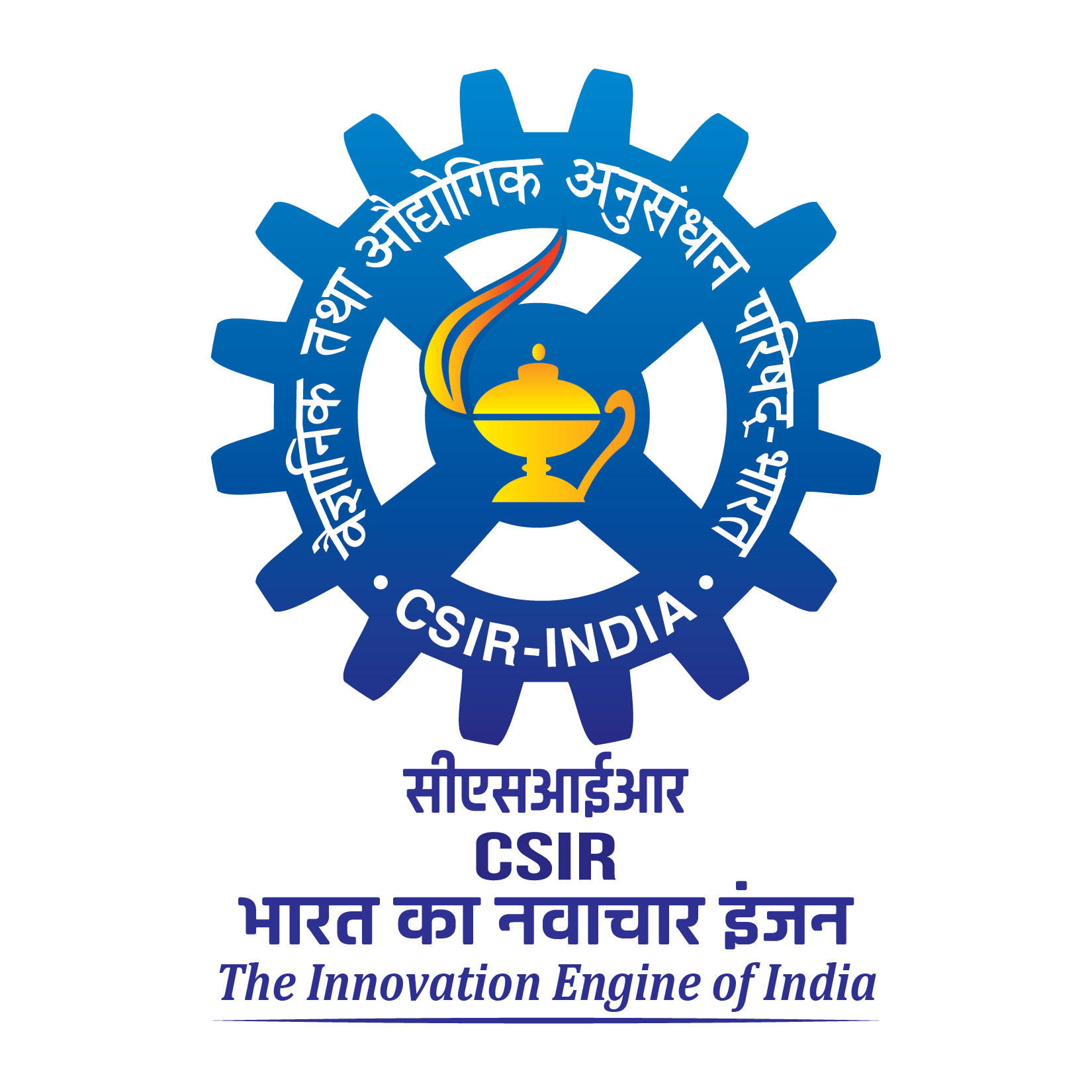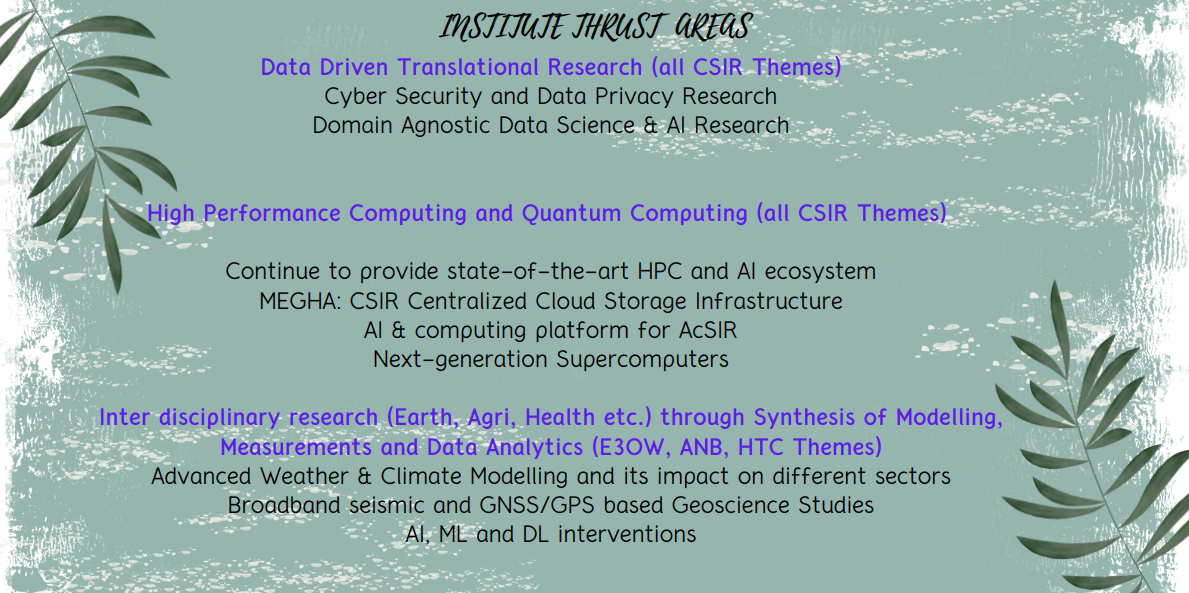-

The Bigdata Research & Supercomputing Division (BRSD) has two distinct objectives. One is to build on its rich expertise of providing CSIR centralized scientific cyber infrastructure and research in cyber security & data privacy. Some of the notable achievements are (i) hosting one of the largest supercomputing facility (ii) receiving largest industry donation (about Rs.15cr) from AMD Inc. to host a GPU based super computer (iii) cyber security test bed which gave first time demonstration of malicious attacks and also led to development / experimental deployment of Darknet (iv) AI based lightweight security algorithms for connected vehicles which is still a futuristic proposition in India. The team has patents and high impact publications to their credit. These activities would be strengthened further with applications of strategic and societal importance using data driven approaches. The second objective is to develop capacity and capability for becoming a leading hub of excellence in data science advancing through cutting-edge research, fostering a diverse and skilled talent pool, and enabling transformative applications across industries and society to address real-world challenges in a domain agnostic manner.
Towards achieving these objectives, Pan-CSIR AI initiative specific to industry was proposed to drive the integration and application of artificial intelligence (AI) principles, technologies, and methodologies within the wide spectrum of industrial research activities of CSIR. This mission is focused on harnessing the power of AI to accelerate industrial growth, innovation, and competitiveness.
This division consists of:
- CSIR Centrealized HPC, AI & Data Science infrastructure
- General IT and associated support for the institute
- R&D in cyber security and privacy
- Development of domain agnostic data science tools & techniques
-

The Interdisciplinary Data Research Division (IDRD) focuses on inter disciplinary data and physics driven research currently in the areas of Earth Science, Agriculture, Healthcare etc. through Synthesis of Modelling, Measurements and Data Analytics. In Earth Science, CSIR-4PI is recognised as a leader at national level and competing at international level for its Niche and multi-dimensional high impact studies of the earth system covering all the four geographic spheres for over three decades. CSIR-4PI pioneered in Global Positioning System (GPS) based geo-science research in India since 1994, when GPS was made fully operational. We were the first to give neo-deterministic seismic hazard map for Indian Sub-continent. Forecasting of high impact hydro-meteorological disasters in the context of urbanization and land use change is an important activity at CSIR-4PI. Another impactful activity is the study of various aspects of climate change using mathematical modelling, data analytics, space-based geodesy etc. and its impact on rainfall, agriculture and health hazards specific to Indian sub-continent. Understanding different factors influencing the variation in the Indian Summer Monsoon and quantifying them is an active area of research of the institute. Studies on carbon cycle in ocean, atmosphere and land adds one more dimension in the context of the Paris climate agreement by providing robust carbon flux estimates that can help addressing gaps in atmospheric carbon cycle research. Most of these studies are carried out through close collaboration with National and State disaster management agencies and supported by highly sophisticated observational infrastructure of the Institute such as GNSS network, broadband seismic network, GHG observation network (WMO standard) being operated in collaboration with several research and academic institutes across the county for past three decades. In fact, the institute established IGS (International GNSS Service) station at Bangalore in 1994 which serves as a reference station for all the geoscience research in the country.






